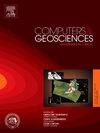Massively parallel modeling of electromagnetic field in conductive media: An MPI-CUDA implementation on Multi-GPU computers
Abstract
Numerical modeling of electromagnetic (EM) fields in a conductive marine environment is crucial for marine EM data interpretation. During marine controlled-source electromagnetic (MCSEM) surveys, a variety of transmitter locations are used to introduce electric currents. The resulting electric and magnetic fields are then concurrently logged by a network of receivers. The forward simulation of MCSEM data for a subsea structure whose electrical properties vary in all three dimensions is computationally intensive. We demonstrate how such computations may be substantially accelerated by adapting algorithms to operate efficiently on modern GPUs with many core architectures. The algorithm we present features a hybrid MPI-CUDA programming model suitable for multi-GPU computers and consists of three levels of parallelism. We design the optimal kernels for different components to minimize redundant memory accesses. We have tested the algorithm on NVIDIA Kepler architecture and achieved up to 105 × speedup compared with the serial code version. We further showcased the algorithm's performance advantages through its application to a realistic marine model featuring complex geological structures. Our algorithm's significant efficiency increase opens the possibility of 3D MCSEM data interpretation based on probabilistic or machine learning approaches, which require tens of thousands of forward simulations for every survey.

 求助内容:
求助内容: 应助结果提醒方式:
应助结果提醒方式:


